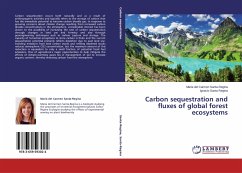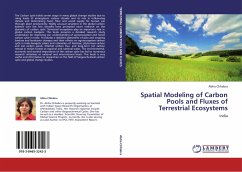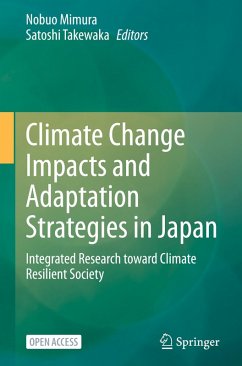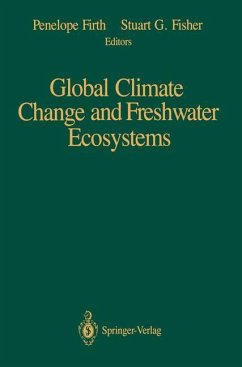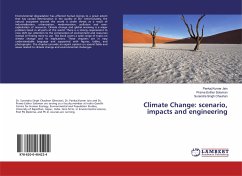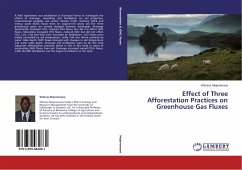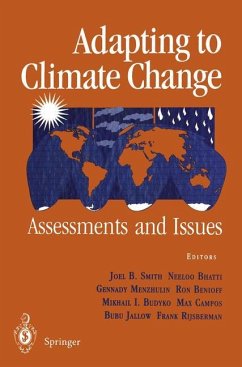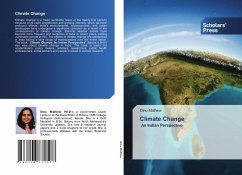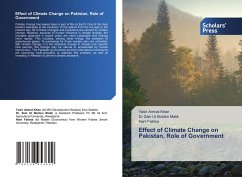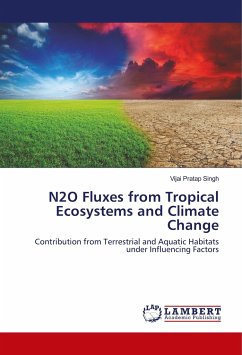
N2O Fluxes from Tropical Ecosystems and Climate Change
Contribution from Terrestrial and Aquatic Habitats under Influencing Factors
Versandkostenfrei!
Versandfertig in 6-10 Tagen
37,99 €
inkl. MwSt.

PAYBACK Punkte
19 °P sammeln!
Nitrous Oxide (N2O), a stable trace gas have 296 times more global warming potential than CO2 and act as a reactant in the destruction of stratospheric ozone. Our knowledge about processes and factors contributing to N2O production and emission has improved due to research during the last several years but uncertainties about the contribution to atmospheric N2O from individual sources still exist. This study is entail to generate more data about the N2O source and sink strength of different natural and managed habitat on which information is lacking from Indian sub-continent. Result of this st...
Nitrous Oxide (N2O), a stable trace gas have 296 times more global warming potential than CO2 and act as a reactant in the destruction of stratospheric ozone. Our knowledge about processes and factors contributing to N2O production and emission has improved due to research during the last several years but uncertainties about the contribution to atmospheric N2O from individual sources still exist. This study is entail to generate more data about the N2O source and sink strength of different natural and managed habitat on which information is lacking from Indian sub-continent. Result of this study indicates that soils of dry tropical ecosystems are the major source of N2O with high seasonal variability in the nitrous oxide flux rate. In climax forest ecosystem N2O sink phenomenon was observed during summer season. This observation that atmospheric nitrous oxide is consume/decompose in relatively dry and oxic-soil is curious and of ecological significance in dry tropical habitats. While mechanism behind the sink of nitrous oxide is still unknown and needed further detailed investigation.




